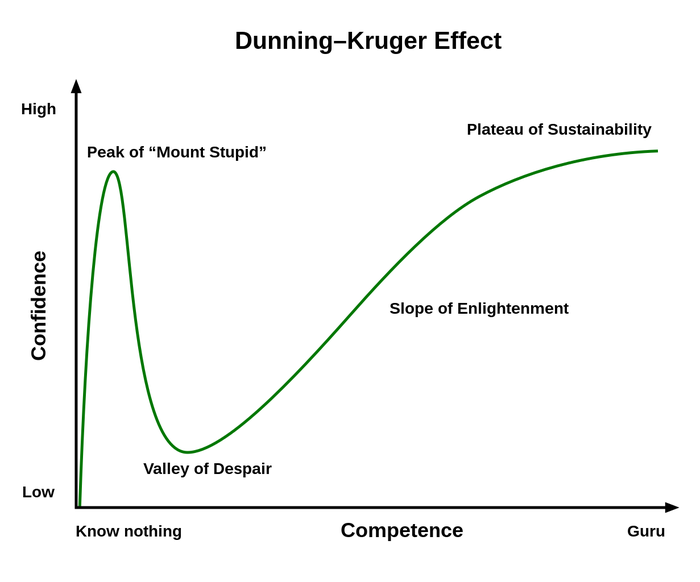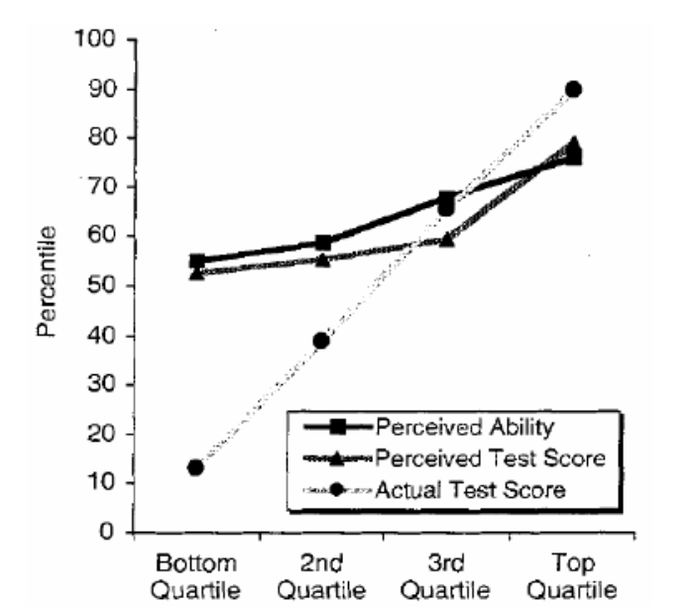We have all heard about the Dunning-Kruger effect, and seen a graph something like this:

The graph seems to suggest that when you're a beginner who have a little experience on a topic, you vastly overestimate your abilities, and think you're at an expert level. And when you gain a little experience a reality check kicks in and you lose most of your confidence, before you slowly build it up again as you gain expert level competence.
However this is all a lie.
This graph has nothing to do with what Dunning and Kruger found in their research.
It has been morphed through endless publications of pop-psychology until it has become unrecognizable from the original research paper.
But what does the paper say?
Firstly, it's important to understand that the study is actually made up of several smaller experiments. They tested people on
- Logic
- Humor
- Grammar
However, since most stories about the effect focus on intellectual abilities, we will focus on the Logic tests. However, the same general conclusions can be drawn from each test.
If we look at the graph from which the pop-psychology graph is derived, we find the following:

Firstly, we see that the competence levels are grouped into quantiles, so we don't get any information about people who have no prior knowledge specifically. This means that this data point has been completely fabricated. There is no underlying evidence.
Furthermore, we see that the perceived competence is positively correlated with the actual performance. That is there is no valley of despair as indicated by the deformed graph.
We do, however, see that beginners vastly overestimate their actual ability. Whereas experts underestimate their abilities compared to their actual abilities, however, experts still estimate their abilities as higher than both the perceived and actual abilities of the lower percentiles.
Overall, we see that the higher your actual performance, the more accurately you rate your performance with the exception of top quatiles which underestimates their performance a little compared to the actual performance.
Dunning and Kruger explains this overestimation of performance for the lower quartiles as coming from a "dual-burden". They write "Not only do they reach mistaken conclusions and make regrettable errors, but their incompetence robs them of the ability to realize it."